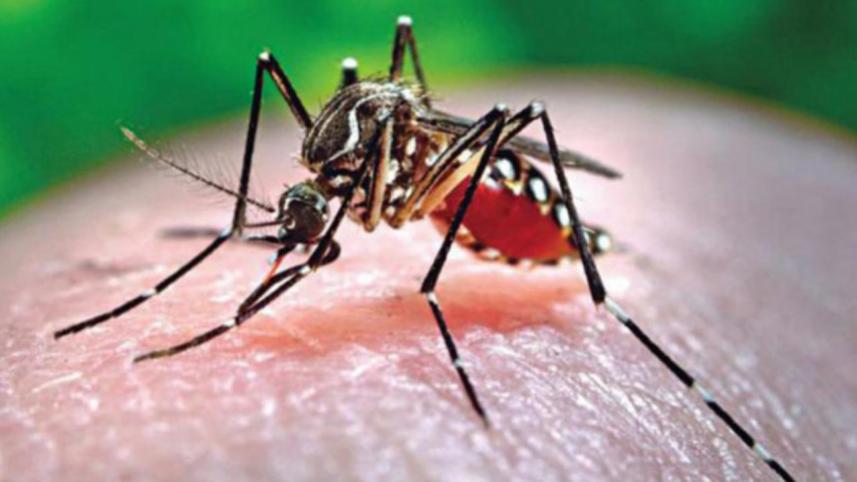Dengue Menace: Deadlier variant at work again

Most of the dengue patients this year are being infected by Serotype-3, a variant of the dengue virus which can increase mortality risk, warn doctors.
"We have tested samples collected from 20 patients admitted to different hospitals across the country and found that all of them were carrying the Serotype-3 variant," said Prof Dr Tahmina Shirin, director of the Institute of Epidemiology, Disease Control and Research (IEDCR).
The variant can cause much trouble if the patient was infected by any of the other dengue variants in the past. But early detection of the infection and immediate hospitalisation can significantly lower the risk, she told The Daily Star yesterday.
Tahmina further said it is the same variant that wreaked havoc across the country in 2019.
During the dengue outbreak that year, the total number of confirmed cases was 101,354 and at least 179 people died, shows data from the Directorate General of Health Services (DGHS).
According to experts, the dengue virus has four variants -- Serotype-1, 2, 3, and 4. Serotype-4 has not been detected in the country yet.
According to the DGHS control room, 153 dengue patients were hospitalised across the country in 24 hours till 8:00am yesterday. With this, the number of confirmed cases this year reached 2,098.
HM Nazmul Ahsan, associate professor at the Shaheed Suhrawardy Medical College and Hospital, said Serotype-3 can increase the severity of a patient's condition.
Echoing Dr Tahmina's views, he said if a patient with this variant had contracted any of the other variants before, risk of mortality can go up.
Nazmul further said he found that most patients requiring hospitalisation this year had been infected before.
He mentioned that many of the patients were suffering from dengue haemorrhagic fever, a rare complication characterised by high fever and damage to blood vessels.
"Such patients can die if treatment is not provided immediately."
The government should increase the number of hospital beds for dengue patients as the situation is taking a turn for the worse, he noted.
Most of the dengue patients this year are going to private hospitals because the government ones like Shaheed Suhrawardy Medical College Hospital, Dhaka Medical College Hospital (DMCH) and Mugda Medical College and Hospital are overburdened with Covid patients.
For example, two dengue wards at the Suhrawardy hospital are now occupied by coronavirus patients, Nazmul said.
He also said many private hospitals are not well-equipped like the government hospitals to treat dengue patients.
According to the DGHS data, 342 among the 2,098 hospitalised dengue patients were receiving treatment at government hospitals as of yesterday.
Dr Prabir Kumar Sarkar, deputy director and associate professor at Dhaka Shishu Hospital, said they were getting more critical child patients compared to that of last year.
There are three types of dengue fever -- classical dengue, haemorrhagic dengue and dengue shock syndrome, he said.
Patients with classical dengue can get better by taking treatment at home. They usually have symptoms such as body rashes and high temperature. But they should be hospitalised urgently if they have abdominal pain or suffer bleeding, Pradip said.
All patients with dengue haemorrhagic fever and dengue shock syndrome should be hospitalised immediately, he added.
Speaking to The Daily Star a few days ago, Health Minister Zahid Maleque said they planned to have six hospitals dedicated for dengue treatment and the required manpower was being managed.
Contacted, Dr Afsana Alamgir Khan, deputy programme manager (malaria and Aedes transmitted diseases), said they received a proposal from the health ministry in this regard and that they were working to finalise it.
"Sir Salimullah Medical College Hospital, Lalkuthi Hospital in Mirpur, Railway General Hospital in Kamalapur, and Shaheed Ahsan Ullah Master General Hospital in Tongi are some of the hospitals which can be used to treat dengue patients," she said.

 For all latest news, follow The Daily Star's Google News channel.
For all latest news, follow The Daily Star's Google News channel.
Comments